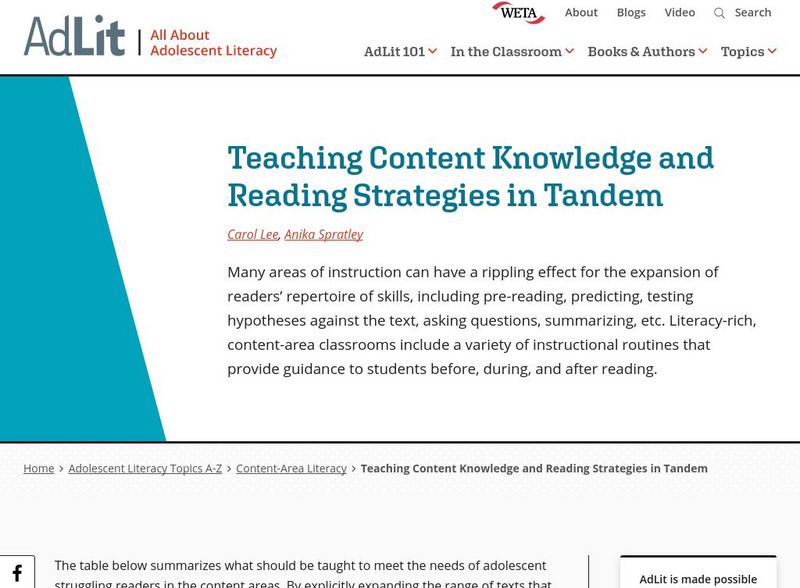Curated OER
Water Around Us
Third graders learn the effects of temperature on the states of water. Then students create paper snowflakes. Finally students complete a computer project with software which teaches the different states of water.
Curated OER
Technology Integration Lesson Plan
Eighth graders research a novel and provide a summary of the story. They relate this information to their lives and evaluate the positives and negatives of the American Revolution. Groups create a PowerPoint presentation on their findings.
Curated OER
My Heritage Country Report
Students list five food dishes that are part of their family's heritage. Each student then does research of a country and a recipe (possibly a family recipe). With the help of members of his/her kitchen group, the student prepares the dish.
Curated OER
Achan takes the spoils of Jericho -1
Students read and answer question about the chapter in the introductory lesson.
Curated OER
With Liberty and Justice for All
Fifth graders identify and define in their own words the first ten amendments to the Constitution. They are assigned a CDV or amendment from the Bill of Rights and create and present a one-minute skit demonstrating it.
Curated OER
Reporting Live From...
Students examine the many disasters in West Virginia. In this US history lesson, students write about and give an oral presentation of one of the disasters as if they were reporters.
Curated OER
From Home to Nome
Third graders develop and create an electronic portfolio on their hometown, school, and themselves to send to a school on the Iditarod Trail. They gather information from the Internet, printed materials, and a digital camera.
Curated OER
Look What I Found Out!
Students attend a field trip. Upon their return to the classroom, students write unanswered questions related to the field trip. Using the internet and other resources, students find answers to their questions. They write their...
Curated OER
Empowering Young People to Repair the World
Students analyze the role of study vs. good deeds in contributing to improving the world. They discuss how study and action are important and consider their obligation to make the world a better place. After discussing the concept of...
Curated OER
Presentation of Pilgrims
Students are given a category to research (clothes, life before the New World, the voyage, etc.) about Pilgrim life. s Students, in groups, create presentations using software program such as PowerPoint.
Curated OER
Don't Throw Away That Junk Mail!
Fourth graders study junk mail to learn the techniques that advertisers use to attract and hold a person's attention.
Curated OER
Adventures in Wonderland: A Genre Study
Students explore the concepts of fantasy writing through this nine lessons unit. The unit presents semantic mapping, discussions, comparisons of various works of fantasy, and the opportunity to create their own fantasies.
Curated OER
Teaching the Toki Kaku Dako
Pupils complete various readings and decorating, constructing, and flying a kite. They analyze how the parts of a system to together. Students comprehend the concept of area.
Curated OER
Owning a Pet
Fourth graders identify and use different forms of writing for various purposes. Using the internet, they read and gather information and write quesitons for their own investigations on the various pets they could own. They practice...
Curated OER
No Title
Fourth graders identify the characteristics of a good paragraph and find those characteristics in a good paragraph from the books, "One Day in the Woods," by Jean Craighead George and "Why Do Leaves Change Color," by Betsy Maestro.
Curated OER
Using 3-D Models for Code Validation with FoilSim
Students use FoilSim to complete the activity to create tables of data sets comparing the lift values for a 3-D model of a symmetrical wing section to the values predicted by the FoilSim software.
Curated OER
Figurative Language
Students put poetic interpretations back together to explain the poem. Starting with cliches, students learn what various phrases mean. They analyze words, phrases and levels of meaning.
Curated OER
Electrical Circuits And Switches
Students design and draw circuits with batteries, small light bulbs and common household conductors. They build and test the circuit then modify it so someone who couldn't use their hands could turn the circuit on and off.
Curated OER
The Thrill of Big-Wave Surfing
Learners view a PBS Nature program about big-wave surfing and participate in a class discussion about their experiences with surfing, body boarding, or body surfing. Students create a drawing based on a reading and post their art around...
Curated OER
Political and Social Impact of World War II
Sixth graders study the life in Jewish ghettos during World War II and learn about tolerance and compassion. In this WWII lesson, 6th graders discuss Jewish ghettos but with a mistreatment of the kids with stickers to signify the Jewish...
Polk Brothers Foundation Center for Urban Education at DePaul University
De Paul University: Center for Urban Education: Classify and Summarize Information [Pdf]
This learning module contains a link to graphic organizers that will help students categorize content and comprehend short and extended texts. The graphic organizers are designed to be applied to reading nonfiction passages in science...
ReadWriteThink
Read Write Think: Scaffolding Summarization With Fishbone Mapping
Lesson that teaches students how to find important and significant information while reading text. After locating information through strategies, students learn how to summarize content-area text. A downloadable fishbone template is linked.
ReadWriteThink
Read Write Think: Get the Gist: A Summarizing Strategy for Any Content Area
A five-part standards-based lesson in which students learn to write a 20 word summary of an informational text by focusing on answering the questions who, what, when, where, why, and how. This strategy can be applied to any content area,...
AdLit
Ad lit.org: Teaching Content Knowledge and Reading Strategies in Tandem
Many areas of instruction can have a rippling effect for the expansion of readers' repertoire of skills, including pre-reading, predicting, testing hypotheses against the text, asking questions, summarizing, etc. Literacy-rich,...


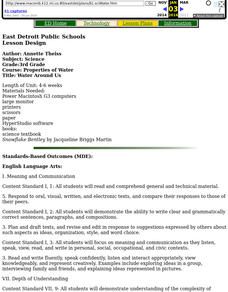

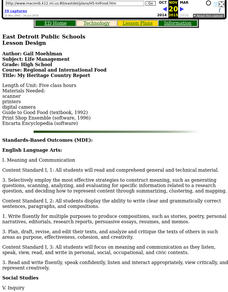






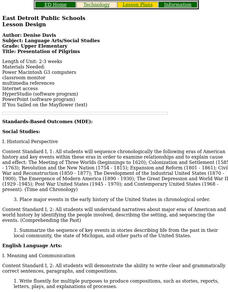

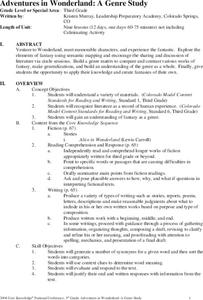

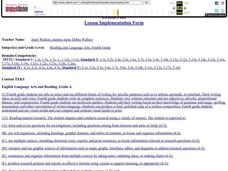




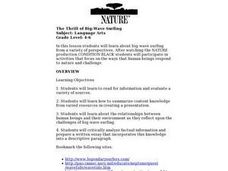
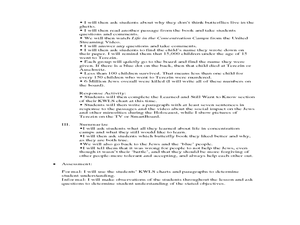
![De Paul University: Center for Urban Education: Classify and Summarize Information [Pdf] Unit Plan De Paul University: Center for Urban Education: Classify and Summarize Information [Pdf] Unit Plan](https://content.lessonplanet.com/knovation/original/78057-7ba90e0b8b82fde8e26d306a4af31f79.jpg?1661787062)


